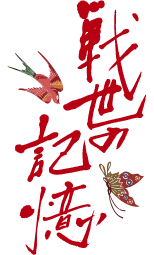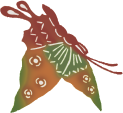
The Regrettable Death of My Younger Brother
The Regrettable Death of My Younger Brother
Name: Shoichi Moriyama(15 森山紹一)
Age at the time: 19 years old (born in January 1925)
Status at the time: Employed at Nanyo Kohatsu
[Giving up on living in Okinawa]
At the time, the people that went to the South Sea Islands included those who were beckoned by family members to come over there and those who were recruited by companies to go there. I departed from Naha with about 20 people including Sakihama-san who was from Motobu, and went to Saipan from Yokohama via Moji. At the time, people could eat cooked rice only twice a year in Okinawa – during Obon and New Year. Sweet potato was the staple food, and although we had vegetables and fish, there was no meat; and I had never even eaten chicken eggs. Meat was that much valuable. In those days, when people slaughtered a pig during New Year, they turned the meat into suchika (salted pork), storing it carefully and eating it a little at a time. Meat and fat are necessities, but they were in shortage, so people were skinny like the people of poor countries. While we were leading such a hard life, my father went to Saipan by himself first and apparently planned to have the rest of the family come over there because the living conditions were good there. My father told us to wait in Okinawa for a year for the time being. He sent us 10 yen immediately. That amount would be worth about a million yen today – enough for us to live for three months.
[A living hell]
A booming noise sounded, and a cloud of dust rose simultaneously. I temporarily lost my hearing at the sound that seemed like my eardrums had been broken. As I suddenly glanced over, I saw my youngest sibling crying. The sibling was a baby, and the baby’s eardrums had ruptured. Nearby, a neighbor’s child was bleeding so much that the child had no energy to even cry as the shrapnel from an exploded bomb had torn off the child’s arm. The child’s mother was going out of her mind as she hugged her child. Under this circumstance, the surrounding area was in commotion. My elder was blown away in the bombing – his torso slashed and hanging in the branches of a tree. I shuddered at the sight. There were dead bodies lying all around, and scattered all over the place were bulging corpses of those who had died before the bombing.
Since my brother was crying, I went to look for water, thinking if we just had water. After walking for a while, I saw a large tree that had fallen and a girl trapped beneath it. Since that child was moaning and wandering between life and death, I was worried “whether she would survive.” Soldiers passed by and shouted: “Don’t make children cry.”
At the time, bullets would come flying by if you let out your voice, and you would come under intensive attack if you turned on a light. So, you were absolutely not supposed to let out your voice – that is how it was then. In fact, my mother had no choice but to choke my youngest brother to death. I saw my immediate family member die in such a manner.
[Regrettable loss of my younger brother]
At the time, there was a voluntary recruitment for the construction corps, and my younger brother and others joined the corps voluntarily. My younger brother underwent training in Saipan. He was assigned to Tinian, and had come to an airfield in Tinian. After the American forces came ashore, my younger brother came back to visit us, saying: “I’ve finally been freed.” I sent him back, saying: “Why did you come back? I’ll take care of the family, so you go and serve your country.” Now, it’s all too late to regret what I did. That was the last time I saw my younger brother.
Name: Shoichi Moriyama(15 森山紹一)
Age at the time: 19 years old (born in January 1925)
Status at the time: Employed at Nanyo Kohatsu
[Giving up on living in Okinawa]
At the time, the people that went to the South Sea Islands included those who were beckoned by family members to come over there and those who were recruited by companies to go there. I departed from Naha with about 20 people including Sakihama-san who was from Motobu, and went to Saipan from Yokohama via Moji. At the time, people could eat cooked rice only twice a year in Okinawa – during Obon and New Year. Sweet potato was the staple food, and although we had vegetables and fish, there was no meat; and I had never even eaten chicken eggs. Meat was that much valuable. In those days, when people slaughtered a pig during New Year, they turned the meat into suchika (salted pork), storing it carefully and eating it a little at a time. Meat and fat are necessities, but they were in shortage, so people were skinny like the people of poor countries. While we were leading such a hard life, my father went to Saipan by himself first and apparently planned to have the rest of the family come over there because the living conditions were good there. My father told us to wait in Okinawa for a year for the time being. He sent us 10 yen immediately. That amount would be worth about a million yen today – enough for us to live for three months.
[A living hell]
A booming noise sounded, and a cloud of dust rose simultaneously. I temporarily lost my hearing at the sound that seemed like my eardrums had been broken. As I suddenly glanced over, I saw my youngest sibling crying. The sibling was a baby, and the baby’s eardrums had ruptured. Nearby, a neighbor’s child was bleeding so much that the child had no energy to even cry as the shrapnel from an exploded bomb had torn off the child’s arm. The child’s mother was going out of her mind as she hugged her child. Under this circumstance, the surrounding area was in commotion. My elder was blown away in the bombing – his torso slashed and hanging in the branches of a tree. I shuddered at the sight. There were dead bodies lying all around, and scattered all over the place were bulging corpses of those who had died before the bombing.
Since my brother was crying, I went to look for water, thinking if we just had water. After walking for a while, I saw a large tree that had fallen and a girl trapped beneath it. Since that child was moaning and wandering between life and death, I was worried “whether she would survive.” Soldiers passed by and shouted: “Don’t make children cry.”
At the time, bullets would come flying by if you let out your voice, and you would come under intensive attack if you turned on a light. So, you were absolutely not supposed to let out your voice – that is how it was then. In fact, my mother had no choice but to choke my youngest brother to death. I saw my immediate family member die in such a manner.
[Regrettable loss of my younger brother]
At the time, there was a voluntary recruitment for the construction corps, and my younger brother and others joined the corps voluntarily. My younger brother underwent training in Saipan. He was assigned to Tinian, and had come to an airfield in Tinian. After the American forces came ashore, my younger brother came back to visit us, saying: “I’ve finally been freed.” I sent him back, saying: “Why did you come back? I’ll take care of the family, so you go and serve your country.” Now, it’s all too late to regret what I did. That was the last time I saw my younger brother.


